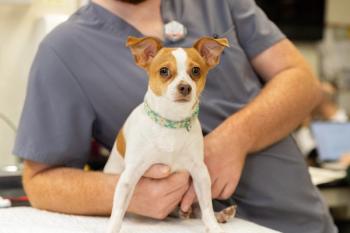
Is your life a financial joke?
I want to ask you a question. What I sorta wanna ask you is...is your life a financial joke?
I want to ask you a question. What I sorta wanna ask you is … is your life a financial joke?
Life choices
We all make choices in this life. My question is, why are thousands of our colleagues just not smart enough to make enough of a great living from veterinary medicine, so that when retirement comes, there is enough put away to enjoy the rest of their less productive lives?
I value veterinary practices for potential sellers and buyers. Sadly, about 30 percent of the valuations of practices, where the veterinarian has invested his or her whole life, cannot be sold for much more than the value of the real estate and maybe the equipment.
Any practice grossing $450,000 and paying the solo veterinarian less than $135,000 plus 12 percent of his/her equity in the real estate, just does not warrant purchasing in today's competitive marketplace. Assuming $300,000 in real estate value with a paid-up mortgage, a veterinary practice owner not showing a total income of $180,000 will not sell that practice, real estate and equipment for much more than the actual value of the real estate and equipment, and that is one big financial disaster.
Intrinsic rewards
I would never claim that these veterinarians had unfulfilled or unfruitful lives, for the practice of our profession pays emotional rewards far above many other walks of life. It is just going to be hard to bear sitting at home, unable to afford to travel and really enjoy retirement with these rewards.
Why is it that the average dentist took home $128,000 in 1999, and the average optometrist in the same year took home $89,000 while our colleagues, working 20 to 30 percent more hours than our sister professions averaged only $59,000?
Why is that? Are we really that lacking in intellectual wherewithal? Does our affection for the four-footed and hairy blind us to the needs of our families and our future? Am I asking too many questions here? Am I?
Straight scoop
Let me give you the straight scoop. Sixty percent of U.S. practices have fees that are just too low to support a family who intends to send its kids to college and retire in some comfort. The figure is more like 75 percent in Canada.
That same practitioner may tell you that they earn $105,000 a year, but forget to note that they have paid off a $300,000 hospital for which they do not pay rent which, to a third party, would cost $45,000. Why not? Because it's embarrassing to make so little, so we just lump everything together.
We have 10,000 colleagues working Saturdays and missing out on their kid's growing up. Why do we make so many mistakes in putting together our lives?
Let's start at the beginning.
A better plan
We graduate and work for another veterinarian, at least until we can make up our minds about partnership or striking out on our own. There are thousands of associate positions available today that are crying out to be filled.
It is far, far better to gain experience under a mentor than on your own. Further, you can earn 25 percent of your production with no capital outlay, no mortgages and no long-term debt. You can save money from this and invest it in real estate and make more money than investing it in some already 20-year-old practice building where you are paying a premium to be a part owner.
When we do choose to start our own practice, we need to consider seriously where and why. Because it is your hometown, and you know a lot of people, does not justify opening in an area with too many practitioners already there or demographics too low to support yet another practice.
Most important decision
Starting a practice is one of the most important decisions you will ever make. You need to know whether the area you choose will support another veterinary hospital. Just because there is a space with no hospital for three miles available does not mean that it will support you.
If there are three hospitals already in the area, that my mean that none of them are prospering. They may all be cursing their low net revenues, but you have no way of knowing that because we tend to lie to ourselves when it comes to our incomes.
There are demographic reports available today that will tell you how many households are in a given zip code and how much the average household earns. You need that information. Don't even think about locating in an area that today falls below $50,000 in 2003 projected average household income and at least a steady population.
With $50,000 in average household income, an $80 to $90 average transaction and a $30 office visit is feasible. Knowing your average household income can prevent you from setting your fees too low and missing income from professional, ethical services for the pets that you care for. Make certain that you get the 2003 projections to work from.
Dr. Snyder, a well-known consultant, publishes the Snyder Advisory Letter, a newsletter for practice productivity and is available for in-practice consultation. He can be reached at 2895 SWBear Paw Trail, Palm City, FL 34990; (800) 292-7995; vethelp@gate.net; FAX (561) 220-4355. M
Newsletter
From exam room tips to practice management insights, get trusted veterinary news delivered straight to your inbox—subscribe to dvm360.





